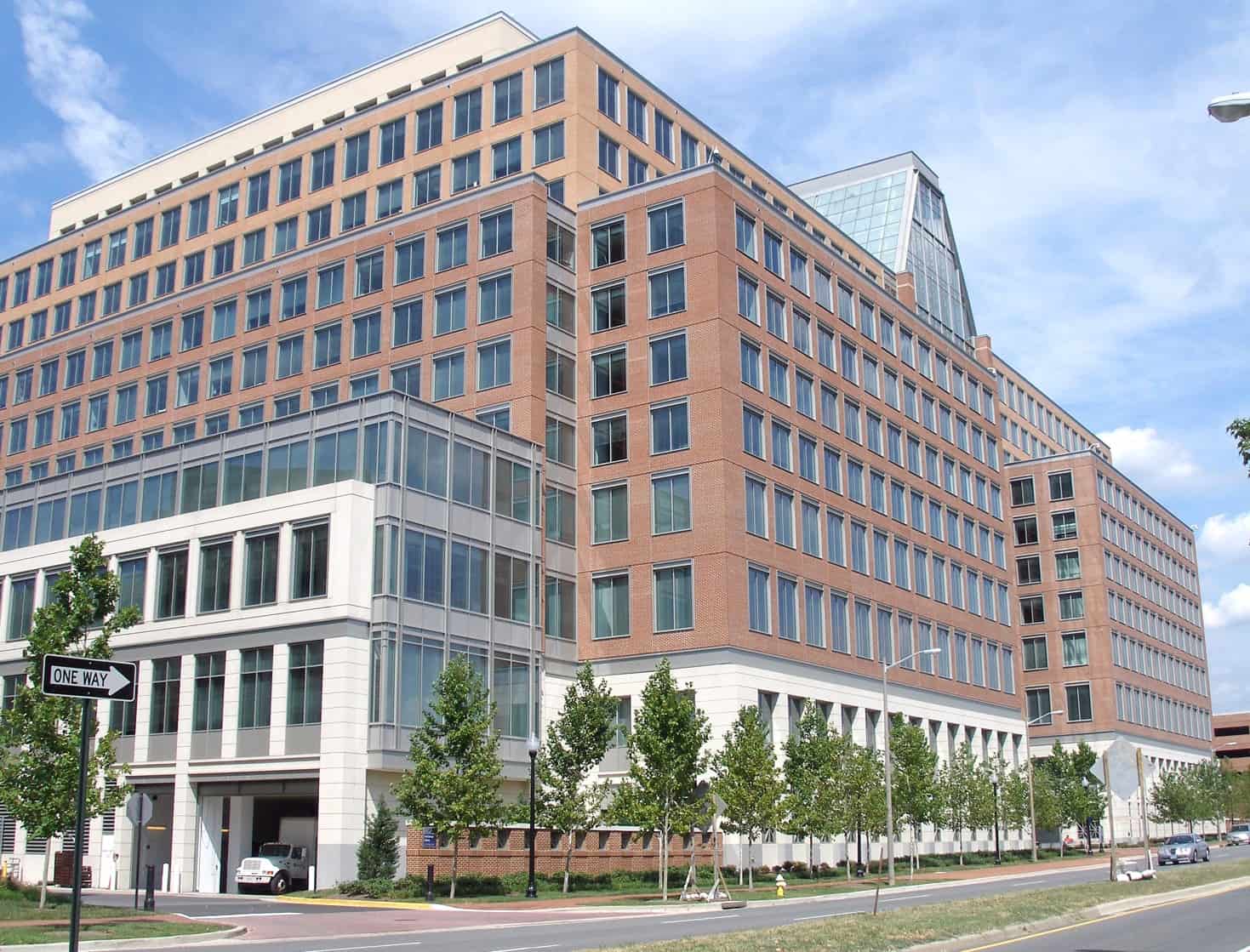
Photo: The James Madison Building in Alexandria, Virginia. It is one of the five buildings that form the headquarters of the United States Patent and Trademark Office/Coolcaesar
When Senator Marco Rubio quipped during a 2016 rally held in Salem, Virginia, that former President Donald Trump had “small hands” and suggested, “you know what they say about people with small hands,” very few Americans thought this interaction would make or break the democracy they have come to cherish. Yet these words, echoed in Steve Elster’s trademark request before the Patent and Trademark Office (PTO), will be the subject of a Supreme Court showdown between the Administrative State and Free Speech.
In 2018, Steve Elster tried to register the phrase “TRUMP TOO SMALL” before the PTO so he could reference Rubio’s comments on t-shirts. Elster’s tongue-in-cheek slogan was not, however, appreciated by the PTO who claimed that §2(c) and §2(a) of the Lanham Act prohibit, respectively, the registration of a mark containing the surname of a living individual without their consent, and the registration of a mark that insinuates false association. The irony of Elster’s criticism of Trump being permissible only if Trump gave his permission to be criticized was lost on the Trademark Trial and Appeal Board (TTAB).
This was not the first time the PTO has stood in the way of American citizens’ rights to free expression. In Matal v. Tam, an Asian American rock band sought to register a trademark that, without context, could be construed as disparaging against Asians in violation of the Lanham Act. The name’s very purpose had been to subvert the oppression of Asian Americans and reclaim the language used for such oppression, yet the band had to wait for the PTO to endorse their statement and political speech before they could use it.
Luckily, the Supreme Court ruled in their favor with an 8-0 unanimous decision finding that the Disparagement Clause of the Lanham Act had been unconstitutionally interpreted to deny Simon Tam’s band their free speech. The Court defended liberty once again in the 2019 case, Iancu v. Brunetti, wherein a mark’s acronym resembled an expletive, despite the PTO’s best efforts to reject the mark on the basis of §2(a) because the language was “immoral[] or scandalous.” The Roberts Court has therefore taken a stand in defending free expression from the tyranny of an Administrative State that thinks itself capable of policing the morality of speech.
Arguably, however, the case before the Court today is even more outrageous than the questions posed in Brunetti and Tam. In those cases, the speech being defended consisted of a purely commercial endeavor and an instance of social commentary, respectively. Elster’s case is one involving truly political speech. Elster’s right to question former President Trump and mock him is a constitutional right so important that it is reified in the very first amendment in the Bill of Rights. Its denial would create a system of trademarks which biases the production of some merchandise over others through the granting of politically uncritical marks and the refusal of politically critical marks, making only some speech commercially viable for distribution. This would create a nefarious chilling effect that would discourage the political speech upon which our democracy thrives. The Supreme Court granted certiorari on June 5, 2023, and the United States can only wait to see whether the Court shall continue its recent trend of protecting free speech from the greedy clutches of the PTO.
